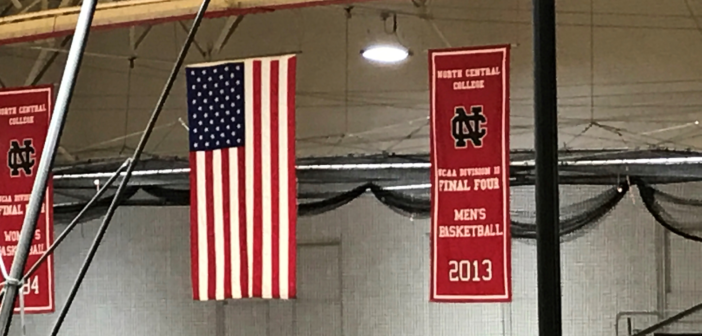For years, world-class athletes have provided us with moments in sports that have made many hearts race, but it seems when an athlete chooses to take a stand for something they believe in, many hearts turn cold.
Activism and social movements have been a part of our history for a long time. Some of the most influential people in society came from being social advocates and have completely changed the course of the world with their voices. With the followers and power that athletes possess, they can have that same role. However, not everyone thinks the same way.
Colin Kaepernick has taken the news by storm and has received public backlash from President Donald Trump since he took office in 2016. Kaepernick is a former NFL quarterback who took a knee during the national anthem to protest the current state of America and the social injustices directed toward the black community.
According to Sports Illustrated, the TV network’s ratings declined 5 percent. This came as a result of protests by players and others expressing outrage over Kaepernick practically being blacklisted from the league. Trump called for players to be “fired” via Twitter as well. The league has since taken action to weaken the effect Kaepernick’s protest had when it began to spread throughout the league.
The NFL now fines players for kneeling, which can also result in a penalty for the team. Kaepernick teamed up with Nike along with other athletes such as LeBron James and Serena Williams in August to release an ad that said “believe in something even if it means giving up everything.”
Kaepernick continues to be a central advocate within the black community to ensure community members’ safety from social injustice. His protest has since spread nationwide among high school and college athletes, many of which are looking to make a similar statement.
NCC lacrosse player Mynk Richardson-Clerk, ’20, was one of those who joined the movement and received similar disapproval from others.
“A lot of people didn’t understand what the movement was about,” Richardson-Clerk said. “I wish people were that offended about police brutality. I wish people were that offended about Laquan McDonald being shot 16 times…I wish they were that offended as they were when someone took a knee during an anthem.”
She also described how the constant desire by the public for athletes to stay silent can be seen as dehumanizing. “You get these athletes in here to play these sports, but you want to take away their voice and their freedom,” said Richardson-Clerk. “You want them to just play for you, which is why this act of defiance and speaking out is so important.”
This act of defiance has proven to be influential to the communities. There is LeBron James’ “I Promise School” which, according to The LeBron James Family Foundation, will provide AP curriculum with STEM, hands-on, problem-based learning that is open and free to underprivileged children in his hometown of Akron, Ohio.
Kaepernick started the “Know Your Rights” campaign that instructs minorities on how to properly interact with law enforcement in order to keep them safe in case of injustice. Not to mention, there are millions of dollars that countless athletes contribute to charities around the world.
Political science professor Dr. Alyx Mark talked about the positives and negatives of athletes being involved in social movements and why some may want them to stay silent.
“Athletes that have celebrity status can help bring attention to a cause,” said Mark. “However, celebrity involvement may complicate the activities of the movement, because, in order to fit into the movement, the celebrity might alter the message to fit their own goals. This could be problematic for the ultimate goals of the movement.”
While this may be true in some instances, it does not take away an athlete’s right to speak their mind, something even our current administration tends to struggle with. Trump has called Kaepernick’s protest “disrespectful to the flag and the country” on Twitter. Fox News anchor Laura Ingraham told James to “shut up and dribble” after he criticized Trump on a sports talk show.
“Athletes who exercise their free speech rights through peaceful protest (are) central to American values,” Mark said. “We have the freedom to speak out when we disagree with policies or the actions of our government, and should respect those who choose to exercise their First Amendment rights.”
Showing no signs of slowing down anytime soon, many athletes are continuing to express their free speech. This has created a lasting impact. There is hope that more will come out of their shell in the future.
“I want to see more athletes stepping up,” Richardson-Clerk said. “You can either step up and use that platform or you can fall into the status-quo and do your job, but I feel that it’s so demeaning to come into a sport and just be limited to that.”

